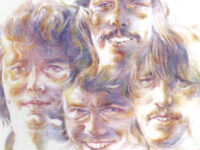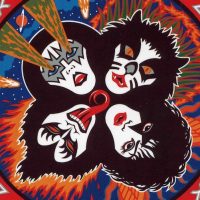They’re objects of music chart intrigue: those left field hits, songs that aren’t really typical of the bands who recorded them and become hits, anyway.
These are songs that when first heard on the radio, no one could guess who played them, not even the band’s fans, because they assumed a different musical identity, one they didn’t take on for any of their other hits. That might have fooled casual listeners to think they were entirely different groups than they really were while alienating many of their fans, but taken on their own, many of these weren’t that bad.
Here’s a small sampling of such songs taken from the time of the Baby Boomers, we who got fooled. And yes, Pete Townshend, we got fooled again and again:
“MOTHER FREEDOM,” BREAD (BABY I’MA WANT YOU, 1972): Along with the Carpenters, no one defined and dominated the soft rock scene as much as Bread. All of their hits came from the cushy croon of David Gates, even though the band had a competing songwriting duo in James Griffin and Robb Royer. But the first song from the band’s most successful album Baby I’m-A Want You was a bona-fide rocker, written and sung by Gates. “Mother Freedom” had a guitar riff that could have been invented by Randy Bachman, and Gates howls it in the chorus. “Mother Freedom” only made it to #37 on the Hot 100, a weak entry compared to all the top 10 and top 20 entries they were getting from the smaltzy stuff at the time. That this made it into the Top 40 at all suggests that a Bread alter ago band — with a different name, perhaps — could have been hit makers, too.
“LONG COOL WOMAN IN A BLACK DRESS,” THE HOLLIES (DISTANT LIGHT, 1972): The band that gave us some fine harmonies and sweet pop with hits like “On A Carousel,” “The Air That I Breathe” and “He Ain’t Heavy, He’s My Brother,” also dropped a swampy CCR-styled cruncher on us called “Long Cool Woman in a Black Dress,” a tune that put the group back in the top ten. Everyone knows this song, but it’s easy to forget who came up with it. The group’s biggest hit in America (#2) was a surprise one, surprising even co-founder and lead singer Allan Clarke, who quickly came back to the Hollies after having already decamped for a solo career.
“BETH,” KISS (DESTROYER, 1976): Talk about unlikely hits. The highest charting single by Kiss wasn’t any of their rowdy, party rockers like “I Wanna Rock ‘n’ Roll All Night,” “Strutter” or “Detroit Rock City,” but a strings-heavy syrupy love ballad that was originally the B-side to “Detroit.” “Beth,” sung by the Catman (Peter Criss), and credited to him and his band mate from a pre-Kiss band, Stan Penridge, rocked the Hot 100 in late ’76-early ’77, getting as high as #7. It even earned a People’s Choice Award, a distinction that Criss contends chaps Gene Simmons’ and Paul Stanley’s asses to this day. Kiss would make one other gold selling single, ” target=”_blank”>but they would have to step out of character again to do it.
“CRAZY LITTLE THING CALLED LOVE,” QUEEN (THE GAME, 1980): The flamboyant, artful rock Queen did so well in the 70s was seemingly left in the dust for the radio-ready cuts that filled The Game at the turn of the 80s. The angular funk of “Another One Bites The Dust” was far, far away from the operatic rock of “Bohemian “Rhapsody,” but Freddie Mercury remained fully himself on that song. “Crazy Little Thing Called Love,” on the other hand, was rockabilly with Mercury assuming the role of Elvis, and doing a damned fine job at that. Brian May swapped out his signature wah-wah pedal for some tasty Eddie Cochran licks, and the #1 hit may have paved the way for the Stray Cats the following year. Maybe their best work was all behind them by then, but this crazy little tune is one of their hardest to shake.
“AUTOMATIC,” THE POINTER SISTERS (AUTOMATIC, 1984): It’s very 1980s, synth-heavy dance music with better than average female harmonies, which are all very characteristic of the Pointer Sisters, I’ll grant you that. But Ruth Pointer’s lead vocal? That sounds like a man! And the way she coolly delivers her low-toned lines amidst a disco pulse and blaring keyboards made the song not only a little eccentric, but a little endearing, too. Endearing enough to reach #5 on the Hot 100 in 1984, and it remains one of the songs the Pointer Sisters’ are most identified with. That is, once people learn that it isn’t a dude singing this song.
[amazon_enhanced asin=”B00005JGA4″ /] [amazon_enhanced asin=”B000063CNC” /] [amazon_enhanced asin=”B000001EL3″ /] [amazon_enhanced asin=”B000000OBP” /] [amazon_enhanced asin=”B000002WDL” /] [amazon_enhanced asin=”B00123NGGE” /] [amazon_enhanced asin=”B001VSQP5Y” /] [amazon_enhanced asin=”B000VZREHQ” /] [amazon_enhanced asin=”B00138K9CM” /] [amazon_enhanced asin=”B00136JC2C” /]
- Ches Smith Quartet – ‘Clone Row’ (2025) - May 30, 2025
- James Brandon Lewis Quartet – ‘Abstraction Is Deliverance’ (2025) - May 27, 2025
- Soft Machine – ‘Drop’ (1971, 2025 remaster) - May 21, 2025





How about a bonus entry for REO Speedwagon’s “Riding The Storm Out?” In contrast to their MOR radio-friendly mid-tempo material, “Storm” was a hard-rocking song, filled with guitar riffs that absolutely scream.